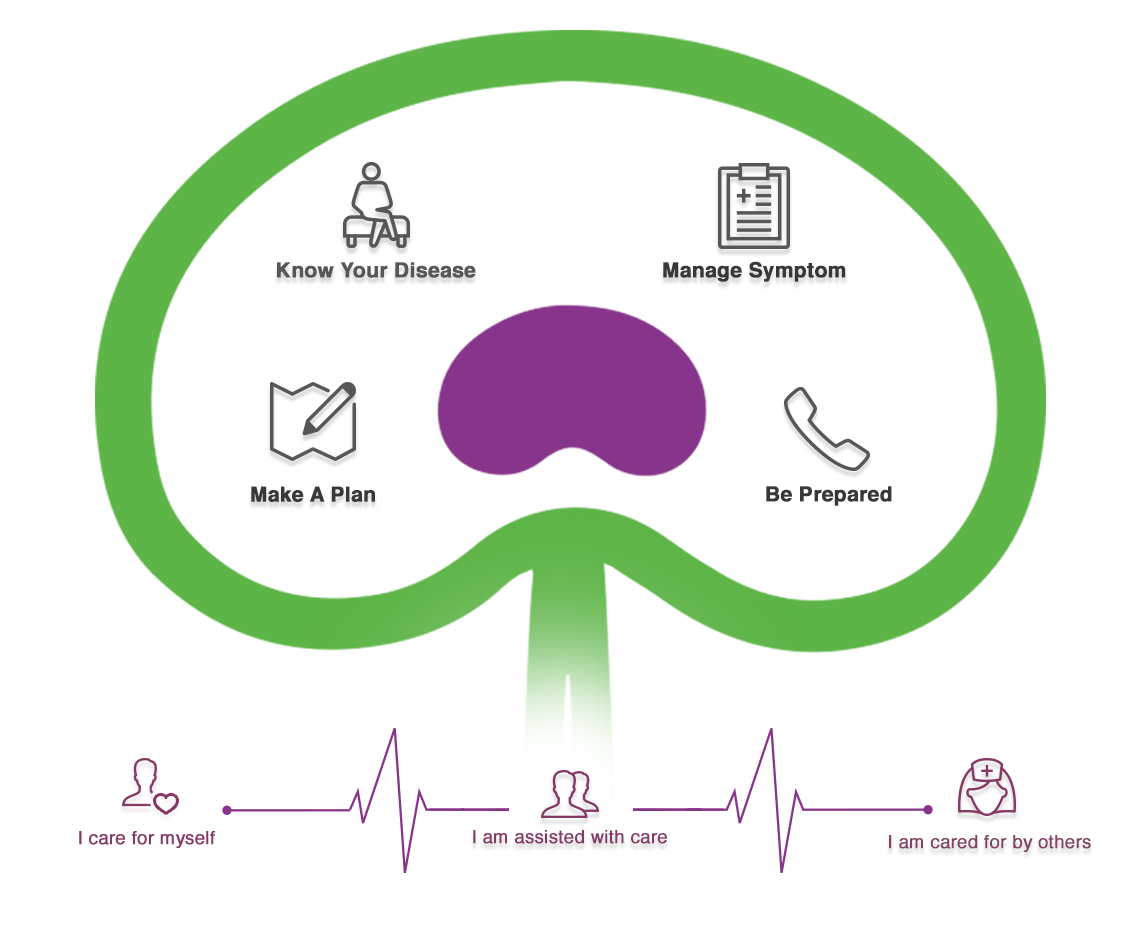Fatigue and Sleep Disturbances
Guiding Priniciple:
Fatigue is a very common symptom in end-stage kidney disease and it is often multifactorial. Treat the patient's tiredness and/or daytime drowsiness if it is affecting their quality of life.
- Vitamin D deficiency
- Metabolic acidosis
- Hypothyroidism/hyperthyroidism
- Anemia
- Malnutrition: consider referral to a registered dietitian
- Mood disorders such as anxiety, depression
- Sleep disorders and symptoms affecting sleep
- Restless Legs Syndrome
- Pruritus
- Pain
- Breathlessness
- Cognitive Impairment
- Medications
- Generalized insomnia
- Mood disorders such as anxiety, depression
- Apnea
- Exercise (if appropriate)
- Nutrition and hydration management
- Cognitive and psychological approaches (eg. relaxation therapy, hypnosis, stress management, delegating and setting limits)
- Complementary treatments such as acupressure/acupuncture (no high quality evidence to support this; no lasting adverse effects)
- Energy Conservation Strategies (See: Tiredness Patient Handout)
- Promoting good sleep hygiene (See: Sleep Patient Handout)
- Incorporate relaxation techniques
- Consider suggesting to your patient:
- Wake up at the same time every morning
- Do not go to bed until you feel sleepy
- Do not “try” to fall asleep
- Avoid napping during the day
- Avoid caffeine in the evening
- Save your bedroom for sleep (and sex) only
- Leave your day’s dilemmas at the door
Reassess medications prescribed for the treatment of insomnia after 2-4 weeks. Avoid OTC sleep aids and benzodiazepines if possible.
Consider low-dose gabapentin or pregabalin (particularly if the patient has concomitant symptoms of neuropathic pain, RLS, or uremic pruritus ):
Gabapentin
- 50-100* mg PO nightly. If not effective, it can be further titrated by 100 mg every 7 nights to a maximum of 300 mg PO qhs. It should be taken 2-3 hours before bed due to delay of peak onset.
- Note that gabapentin is not commercially available in 50 mg capsules, but can be compounded for patients if the recommended low starting dose is desired.
- The most common side effects are drowsiness, dizziness, confusion, and fatigue. Peripheral edema may also be a side effect.
Pregabalin
- Similar to gabapentin, but more expensive and not covered by Seniors’ or Basic Alberta Blue Cross plans. Other private plans may cover the cost.
- Pregabalin can be initiated at 25 mg PO nightly and titrated by 25 mg every 7 nights to a maximum of 75 mg PO qhs. It should be taken 2 hours before bedtime.
- Potential side effects are similar to those of gabapentin.
If ineffective, cautiously consider:
Mirtazapine (Remeron)
- 7.5 mg PO at bedtime (not if taking Tramadol or antidepressants)
Doxepin
- 10 mg PO at bedtime (monitor carefully for anticholinergic side effects and cardiac arrhythmias)
Zopiclone
- 3.75-5 mg PO at bedtime for short term use
Melatonin
- 2-5 mg PO at bedtime (although the evidence is somewhat limited and inconclusive)
Special considerations at End of Life:
- As a patient’s condition deteriorates, certain non-pharmacological interventions will become less realistic (eg. exercise). Energy conservation and restoration will become of utmost importance.
- Ensure that appropriate supports are in place to assist with activities of daily living and that nursing care is available as needed.
- Drowsiness may increase as the end of life approaches due to disease progression (and/or medications.) Some patients and families may even prefer increased sleepiness if the patient remains comfortable.



